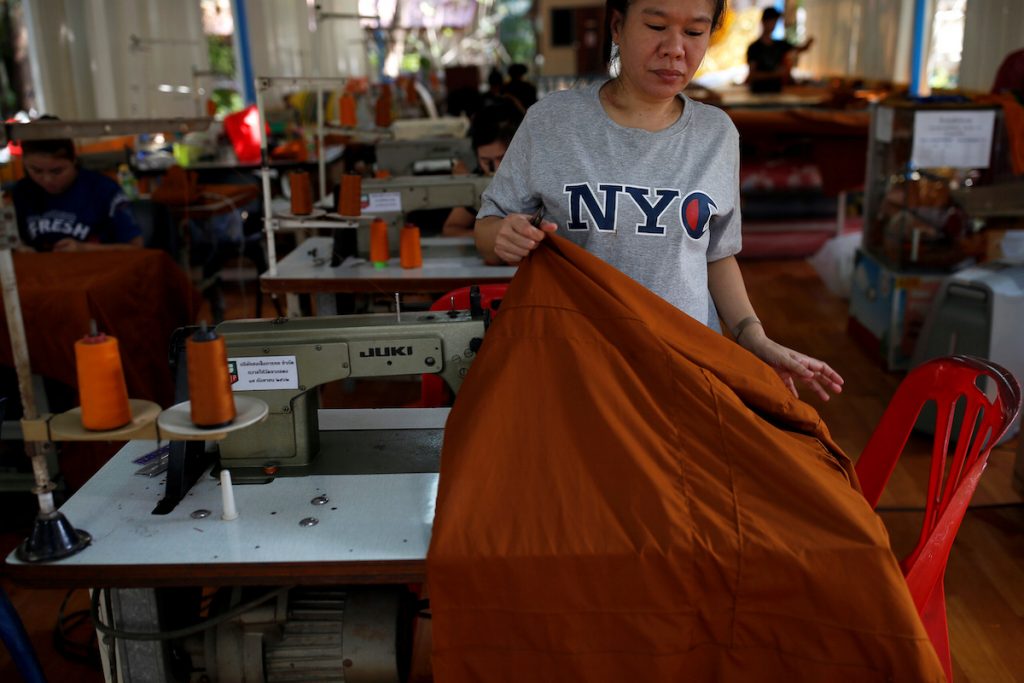At a Buddhist temple south of Bangkok, a monk watches as a machine presses down on thousands of water bottles, before a giant bale of crushed plastic rolls out with a thud.
The plastic is destined to be recycled into polyester fibres, which will be made into fabric for saffron-coloured robes for monks.
The recycling temple of Wat Chak Daeng is one bright example of recycling for Thailand, one of five countries that account for more than half of plastic in the world’s oceans.
The monks have crushed 40 tons (88,185 lb) of plastic over two years since starting the program, aiming to curb plastic waste entering the Chao Phraya River, which flows south to the Gulf of Thailand in the western Pacific Ocean.
“I’m practicing the Buddha’s teachings, which also align with solving the global environmental crisis,” said Phra Maha Pranom Dhammalangkaro, 54, abbot of the temple in Samut Prakan province, just south of Bangkok.
Unlike most temples where people give monks alms like food and clothes, devotees ride bicycles here to offer plastic bags and bottles in exchange for Phra Maha Pranom’s blessings.
“Donating one kilogram of plastic bottles can help make a full set of monk robes, which has a high return value, both in terms of money and merits,” the monk said.

The temple has produced at least 800 sets of robes, with more in the production stages.
Each set sells for between 2,000 baht ($65.79) and 5,000 baht ($164.47), to keep funding the project and pay waste-sorting volunteers, many of whom are local housewives, retirees and disabled persons.
Thailand is the fifth highest contributor of plastic to the world’s oceans, according to a report by the U.S.-based group Ocean Conservancy. The list includes three other Southeast Asian countries and China, the top plastics polluter.
“Not only are the monks making a concrete contribution to recycling, but they are raising awareness in their communities,” said Chever Voltmer, director for Plastics Initiatives at Ocean Conservancy.
When Phra Maha Pranom ventures into the community, villagers, both young and old, come out to contribute plastics.
“If you don’t collect these plastics, where do they end up? In the stomachs of dugongs, dolphins, whales, and many other sea animals. Then they die,” he tells them.






